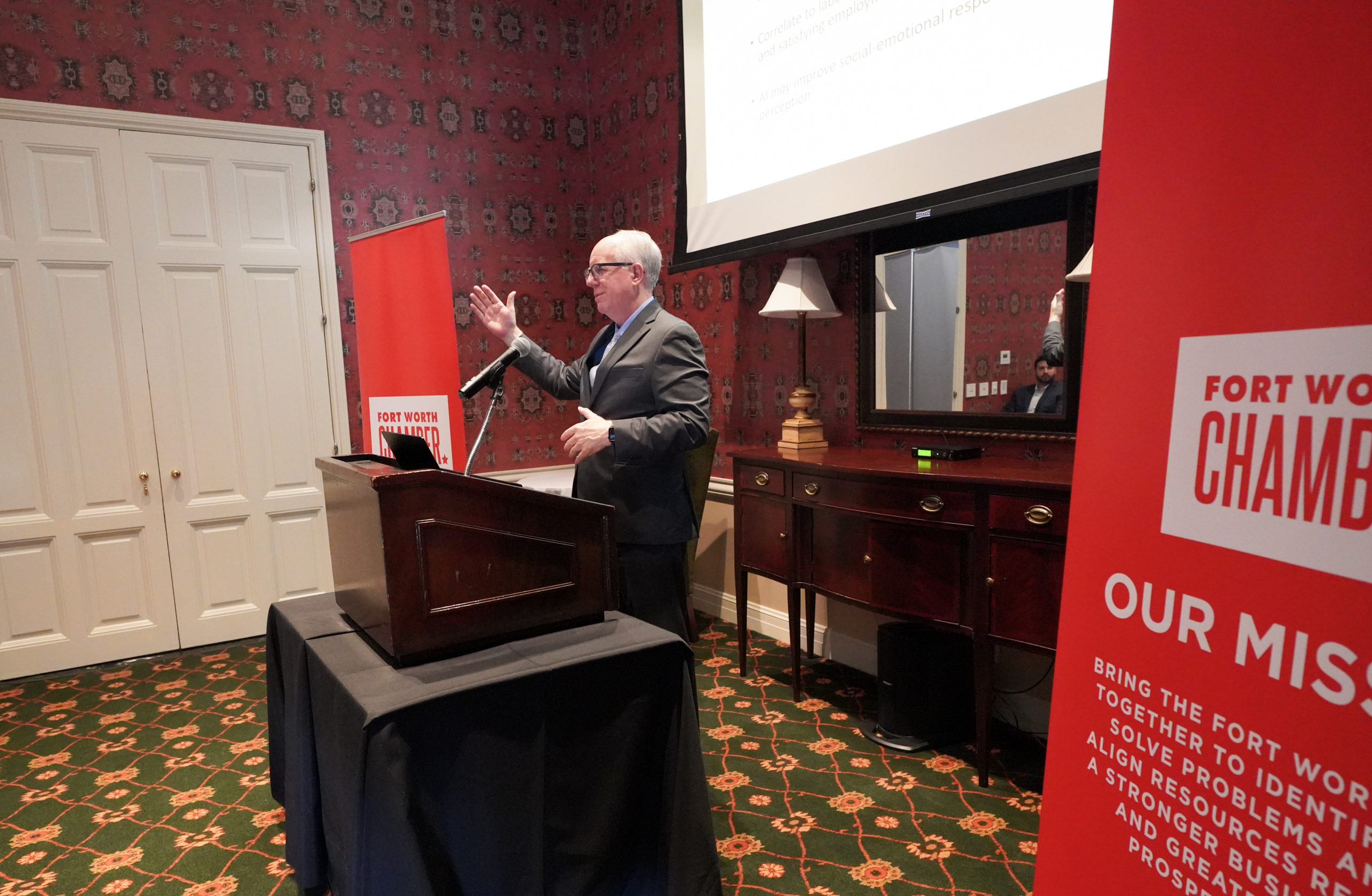Last week, the Fort Worth Chamber hosted a “Policy Pulse” conversation on the future of work, collaborating with the American Enterprise Institute and scholar Brent Orrell. Specifically, the presentation zeroed in on how demography and technology are shaping the skills of the future.
Orrell highlighted several demographic trends that are shaping the modern economy and workforce:
- The labor force participation rate of men in the US has fallen from 75% in 2000 to 68% today, and has failed to recover from the pre-COVID level of 69%
- The share of Americans who are retired rose from 15.5% in 2008 to more than 19% today
- Women now make up a larger share of the American workforce than men
Orrell also discussed the emergence of AI and the uncertainty of its impact on automation, job creation, and skills moving forward. Orrell discussed the importance of noncognitive skills for the modern workforce, as they are the types of skills that are less likely to fall victim to automation and replacement by AI. Orrell outlined a “Skills Double Helix” illustrating how technical skills – science, technology, math, engineering, coding, etc. – can work alongside a set of non cognitive skills – empathy, professionalism, collaboration, interpersonal skills, etc.
The importance of these noncognitive skills has surged in terms of their importance to employers in recent years. In 2016, “time management skills and ability to prioritize” ranked as the 7th most desired skill in a survey of employers. By 2023, it had ascended to the most desired skill among employers.
The "Policy Pulse" conversation provided valuable insights into the evolving landscape of work. Events like these highlight the importance of ongoing dialogue and collaboration in navigating the challenges and opportunities ahead. We're grateful to the American Enterprise Institute and Brent Orrell for their contributions and look forward to continuing these important discussions on a variety of policy issues that matter to the business community.
In Case You Missed It
National
State and Local
Upcoming Dates
- June 25: Fort Worth City Council Meeting, 10 a.m. at City Hall
- July 2: Tarrant County Commissioners Court, 10 a.m. at G.K Maenius Administration Building






